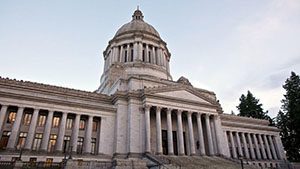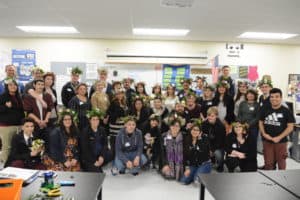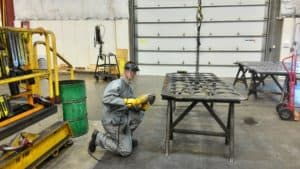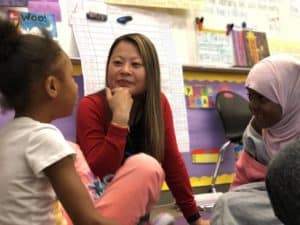Summary of the 2018 Washington Legislature’s Supplemental Budget
By League of Education Voters Policy Team
 The Washington state Legislature passed a state budget agreement (Senate Bill 6032) that adds court-ordered K-12-school funding and also gives a one-time property-tax cut. The 2017-19 supplemental operating budget plan aimed at satisfying the long-running state Supreme Court school-funding order known as the McCleary decision. Below is a summary of how the budget impacts Early Childhood Education, K-12, and Higher Education.
The Washington state Legislature passed a state budget agreement (Senate Bill 6032) that adds court-ordered K-12-school funding and also gives a one-time property-tax cut. The 2017-19 supplemental operating budget plan aimed at satisfying the long-running state Supreme Court school-funding order known as the McCleary decision. Below is a summary of how the budget impacts Early Childhood Education, K-12, and Higher Education.
Early Childhood Education
Legislators prioritized increasing home visitation capacity, and Working Connections Child Care (WCCC) provision to homeless families in this budget. Funds are also provided to improve overall early childhood education (ECE) system capacity, including Washington State Department of Children, Youth and Families (DCYF) implementation, with $700K for a degree program to produce more educators, and $403K to strategize ways to engage the Washington business community and to educate ECE providers. Additional allocations will go toward supporting nurse consultations, mental health interventions, and trauma informed service provision.
- $2.3M—Home visiting expansion +275 families & to equalize rates
- $1.6M—Working Connections Childcare 4-month grace period for homeless families
- $1M—Implementation of the new Department of Children, Youth, and Families
- $74,000—Implement House Bill 2861 (trauma-informed child care)
- $150K—Home visit Medicaid facilitator – maximize federal dollars collected for home visiting
- $700K—ECE degree program at Western on the Peninsula, will produce 75 BAs/year
- $240K—“Childcare Collaboration Task Force” created by House Bill 2367: Dept. of Commerce to convene a task force to study the impact of child care affordability and accessibility on the workforce & businesses, to report findings & recommendations by the end of 2019
 Nicole Portillo is a junior at the University of Washington Tacoma Campus. A College Success Foundation alumna, she now works as a CSF Navigator, peer mentoring incoming CSF scholars. She also works as a sales advisor for Costco in Tacoma. In addition to the State Need Grant, Nicole receives financial aid through the UW Tacoma Undergrad Tuition Exemption and the College Bound Scholarship.
Nicole Portillo is a junior at the University of Washington Tacoma Campus. A College Success Foundation alumna, she now works as a CSF Navigator, peer mentoring incoming CSF scholars. She also works as a sales advisor for Costco in Tacoma. In addition to the State Need Grant, Nicole receives financial aid through the UW Tacoma Undergrad Tuition Exemption and the College Bound Scholarship. There are schools all across this state that are making dreams come true for their students.
There are schools all across this state that are making dreams come true for their students. More than 20,000 State Need Grant eligible students attending Washington higher education institutions are not currently receiving a State Need Grant because the program has not been
More than 20,000 State Need Grant eligible students attending Washington higher education institutions are not currently receiving a State Need Grant because the program has not been
 Make sure all students have access to supports & opportunities as they explore their career options and determine the academic pathway that helps them achieve their goals.
Make sure all students have access to supports & opportunities as they explore their career options and determine the academic pathway that helps them achieve their goals.
 Students learn most effectively when their school feels safe, inclusive, supportive, and respectful. (1)
Students learn most effectively when their school feels safe, inclusive, supportive, and respectful. (1)